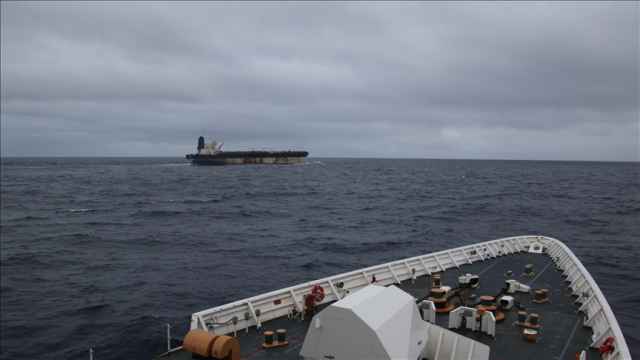JOHANNESBURG, South Africa — Gazprom has made its first commercial African gas discovery in Algeria, a move that could enable it to expand gas sales into Spain and Portugal.
Algeria "is extremely important" as it could enable Gazprom to expand to the only remaining areas of Europe where it's not present, Boris Ivanov, head of the company's global exploration and production unit Gazprom EP International, said Wednesday in an interview at the Africa Upstream conference.
Gazprom, Russia's state-owned gas export monopoly, controls about 30 percent of Europe's gas supplies and has the world's largest gas reserves.
"We are very happy with the well results. It produced quite sizeable volumes," Ivanov said, adding that the RSH2 well in Algeria produced at 2.7 million standard cubic feet, or 75,000 cubic meters, of gas a day.
The company plans to drill 18 wells outside Russia next year, mostly in Africa, he said. It plans to drill another well next year in Algeria and start an "extensive" drilling campaign in Libya in the first quarter of 2011, he said. Gazprom will probably spend several hundred million dollars in Africa next year, he added, declining to be more specific.
Gazprom is evaluating a "huge list of potential assets" in Nigeria and has held talks with Royal Dutch Shell over possible acquisitions of oil fields in the West African country, Ivanov said. Gazprom, which cannot buy Shell's assets directly under local rules, has held talks with local Nigerian company Equinox, he said.
Gazprom in March began drilling the onshore El Assel field 500 kilometers south of Algeria's capital after winning rights to the area in 2008. It holds 49 percent of the project with Algeria's state-controlled Sonatrach owning the rest. The company intends to bid for more blocks during the next round, Ivanov said.
The Russian gas giant plans to expand cooperation with Namibia and expects to make an investment decision, together with its partners, within 12 months to develop the offshore Kudu gas field, Ivanov said.
Gazprom is working with Tullow Oil, a British explorer focusing on Africa, as well as Namcor, Namibia's state-owned oil company, and Japan's Itochu Corp. on the development plan for the Kudu license, which holds about 1 trillion cubic feet (28.3 billion cubic meters) of gas resources. Developing the offshore Kudu gas field could cost about $1 billion. In addition to that, the partnership could build an 800-megawatt power plant, supplying electricity to Namibia and South Africa, Ivanov said.
The partners will carry out front-end engineering and design studies for the gas-field project next year, Tullow vice president Tim O'Hanlon said Wednesday.
Gazprom "tested the waters" in discussions with South African power utility Eskom Holdings about the Kudu project, he said, adding that it's also discussed Kudu with Standard Bank Group, Africa's largest lender.
A Message from The Moscow Times:
Dear readers,
We are facing unprecedented challenges. Russia's Prosecutor General's Office has designated The Moscow Times as an "undesirable" organization, criminalizing our work and putting our staff at risk of prosecution. This follows our earlier unjust labeling as a "foreign agent."
These actions are direct attempts to silence independent journalism in Russia. The authorities claim our work "discredits the decisions of the Russian leadership." We see things differently: we strive to provide accurate, unbiased reporting on Russia.
We, the journalists of The Moscow Times, refuse to be silenced. But to continue our work, we need your help.
Your support, no matter how small, makes a world of difference. If you can, please support us monthly starting from just $2. It's quick to set up, and every contribution makes a significant impact.
By supporting The Moscow Times, you're defending open, independent journalism in the face of repression. Thank you for standing with us.
Remind me later.





